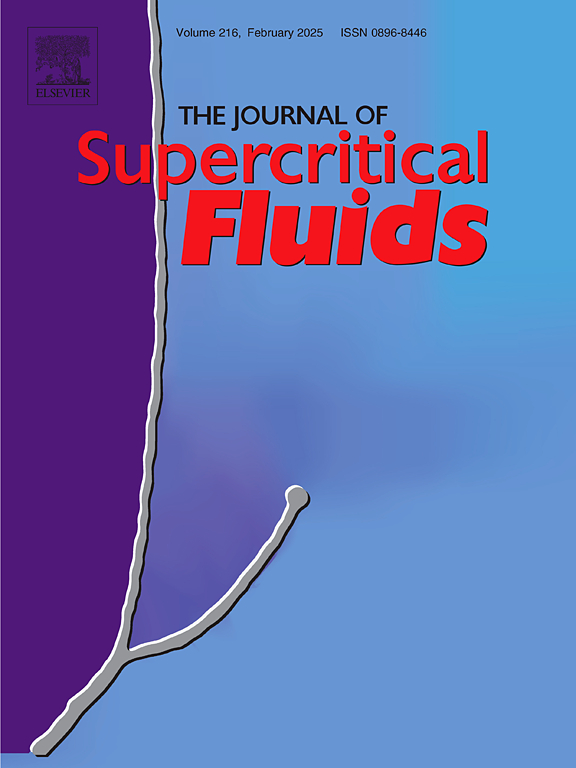Dual split transcritical carbon dioxide cycle based on all engine operating conditions with high thermal adaptability
IF 3.4
3区 工程技术
Q2 CHEMISTRY, PHYSICAL
引用次数: 0
Abstract
To achieve carbon peaking and carbon neutrality goals, the CO2 transcritical power cycle is regarded as a promising technology for waste heat recovery. Variations in the working conditions of the engine can lead to significant fluctuations in waste heat. Therefore, to enhance adaptability to changes in heat sources, this study focuses on natural gas engines and proposes a dual split flow system for the CO2 transcritical power cycle based on heat capacity matching. This system features two diversion designs that can actively adjust the mass flow rate of carbon dioxide through different heat sources, thereby actively adjusting the equivalent heat capacity of the working fluid and matching the changes in heat sources under varying operating conditions. Based on actual road conditions, this study establishes a dynamic model of system and proposes a flow adaptive allocation control strategy for achieving heat capacity matching. The study conducted simulations of the dynamic system of the waste heat recovery system under all engine operating conditions, and interesting results showed that CO2 transcritical power cycle achieved positive net power output under all engine operating conditions, with over 91 % of engine operating conditions achieving a cylinder liner water utilization rate greater than 99 %, under the studied engine operating conditions, the flue gas utilization rate was greater than 92.2 %, and the engine BTE increased by 2.96 −7.04 %.
基于所有发动机运行条件的双分流跨临界二氧化碳循环,热适应性强
为实现碳调峰和碳中和目标,二氧化碳跨临界发电循环被认为是一种很有前景的余热回收技术。发动机工作条件的变化会导致废热的大幅波动。因此,为了提高对热源变化的适应性,本研究以天然气发动机为重点,提出了一种基于热容量匹配的二氧化碳跨临界动力循环双分流系统。该系统具有两种分流设计,可通过不同热源主动调节二氧化碳的质量流量,从而主动调节工作流体的等效热容量,匹配不同工况下的热源变化。本研究以实际路况为基础,建立了系统动态模型,并提出了实现热容量匹配的流量自适应分配控制策略。研究对所有发动机工况下的余热回收系统动态系统进行了仿真,有趣的结果表明,二氧化碳跨临界动力循环在所有发动机工况下均实现了正净功率输出,91%以上的发动机工况实现了缸套水利用率大于 99%,在所研究的发动机工况下,烟气利用率大于 92.2%,发动机 BTE 提高了 2.96 -7.04 %。
本文章由计算机程序翻译,如有差异,请以英文原文为准。
求助全文
约1分钟内获得全文
求助全文
来源期刊

Journal of Supercritical Fluids
工程技术-工程:化工
CiteScore
7.60
自引率
10.30%
发文量
236
审稿时长
56 days
期刊介绍:
The Journal of Supercritical Fluids is an international journal devoted to the fundamental and applied aspects of supercritical fluids and processes. Its aim is to provide a focused platform for academic and industrial researchers to report their findings and to have ready access to the advances in this rapidly growing field. Its coverage is multidisciplinary and includes both basic and applied topics.
Thermodynamics and phase equilibria, reaction kinetics and rate processes, thermal and transport properties, and all topics related to processing such as separations (extraction, fractionation, purification, chromatography) nucleation and impregnation are within the scope. Accounts of specific engineering applications such as those encountered in food, fuel, natural products, minerals, pharmaceuticals and polymer industries are included. Topics related to high pressure equipment design, analytical techniques, sensors, and process control methodologies are also within the scope of the journal.
 求助内容:
求助内容: 应助结果提醒方式:
应助结果提醒方式:


